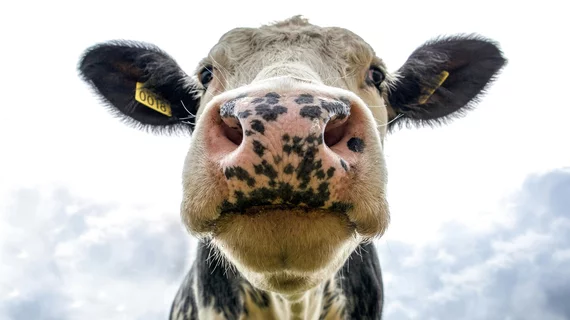Worries rise over bird flu in cows
Infectious disease experts are ratcheting up their watchfulness of the H5N1 influenza virus. That’s because the strain of “bird flu” has continued turning up in domestic livestock.
Last week the Department of Agriculture counted infections in around 20 cow herds across eight states. This week the tally is up to 33 herds in nine states. Most of the bovine carriers picked up the flu from farmed chickens or turkeys that had been exposed to infected wild birds.
Only two humans have been confirmed infected, but researchers have been surmising more sickened farm workers are probably walking around with mild or no symptoms while avoiding getting tested, according to numerous news reports.
Meanwhile the FDA has found viral fragments of H5N1 in around 20% of retail milk samples.
However, the FDA and USDA together are assuring the American public that the country’s milk supply is safe for consumption thanks to a.) pasteurization and b.) “the diversion or destruction of milk from sick cows.”
Some watchers aren’t waiting to sound the alarm.
At Salon.com, senior health and science writer Nicole Karlis notes that experts aren’t expecting a human outbreak of H5N1—yet. But it could be the next pandemic in the not-so-distant future.
“The fact that the current spread between species, and even to a few humans, is likely underestimated could mean that an emergency could arrive too late to contain,” Karlis writes in a carefully reported piece.
At Your Local Epidemiologist, a Substack newsletter, Katelyn Jetelina, PhD, MPH, Kristen Panthagani, MD, PHD, echo the concern while highlighting two positive updates:
- There is a federal rule for moving cows now. As of yesterday, the federal government requires testing all lactating cows before moving across states. Finally! Unfortunately, it’s likely too late to contain transmission.
- Pigs have been testing negative. This is good news. Pigs are dangerous hosts for H5N1 because they have avian and human receptors. They are known as “mixing vessels” for influenza viruses.
And at Business Insider, former U.S. surgeon general Jerome Adams, MD, MPH, says he agrees with the CDC that the current risk to humans is low.
At the same time, Powell warns, U.S. healthcare should avoid repeating some mistakes made in the early days of COVID-19.
“If it keeps spreading in animals, it is eventually going to cause problems for humans—either because we don’t have food because they’ve got to start exterminating [poultry] flocks, or because it starts to make a jump in humans,” Powell says. “The more it replicates, the more chances it has to mutate.”
Coverage of the potential health threat is unsurprisingly feverish across the internet.

